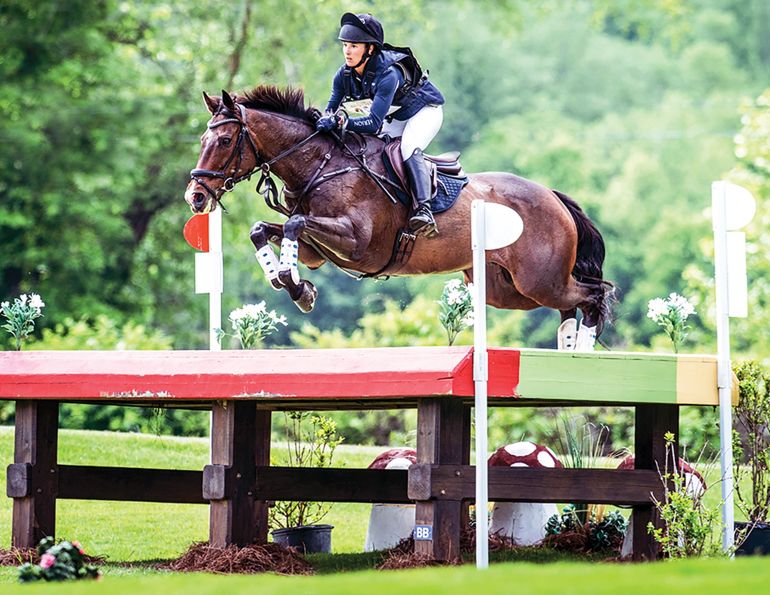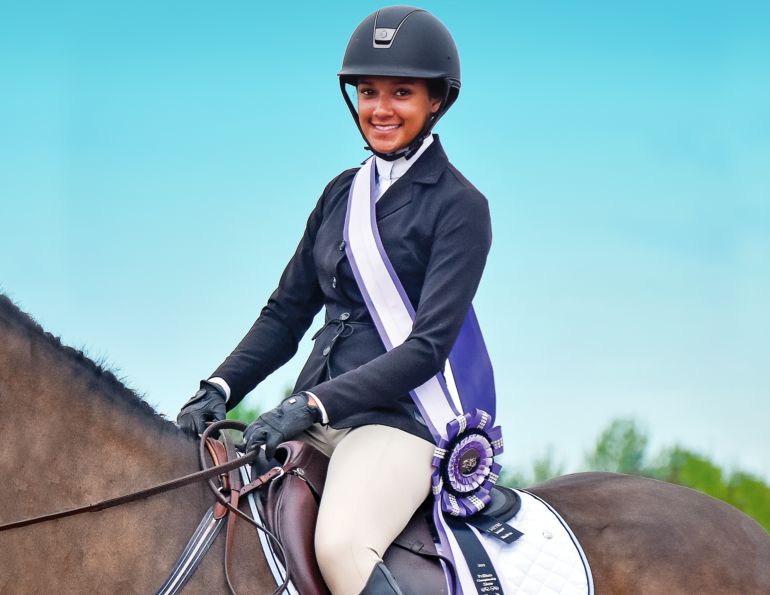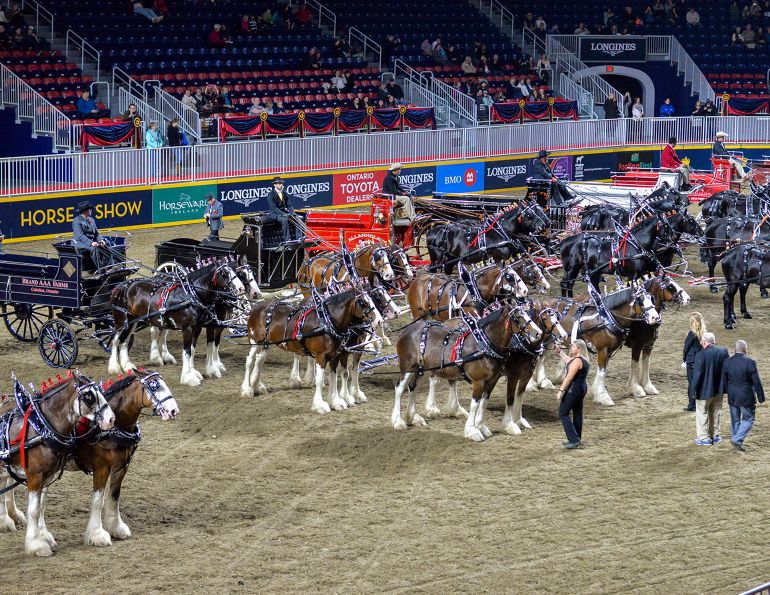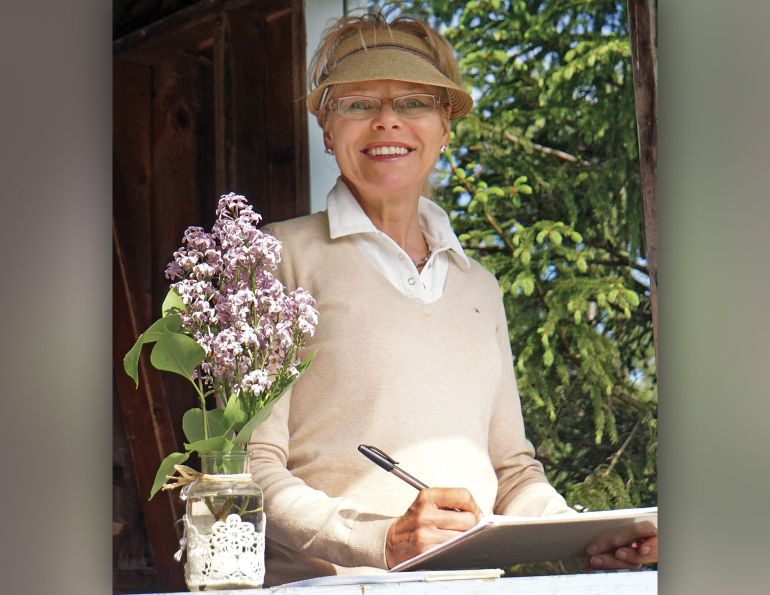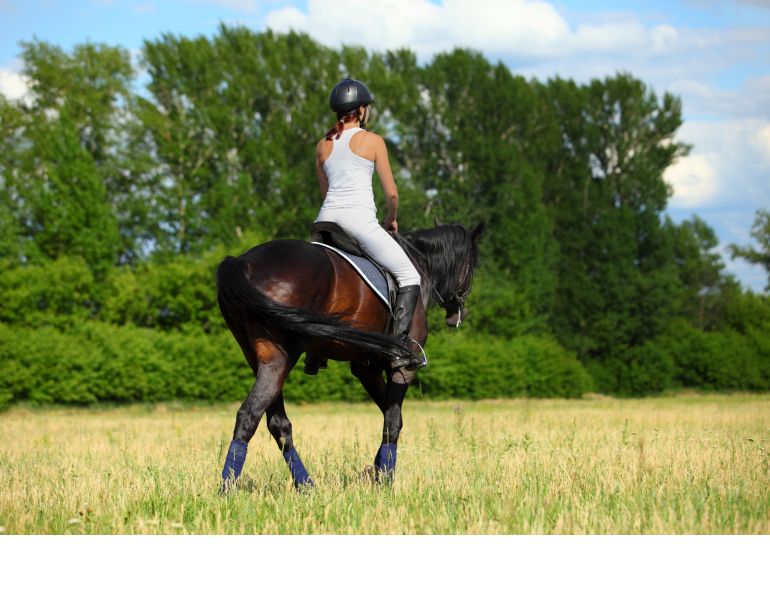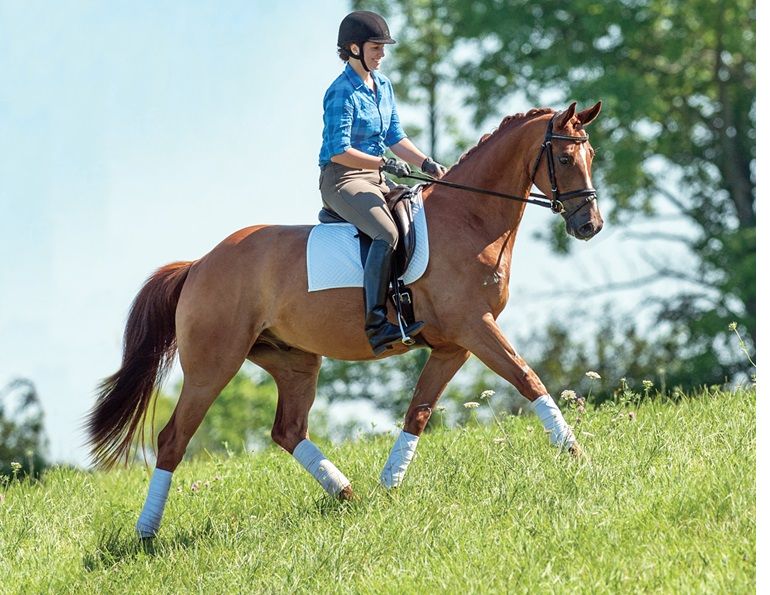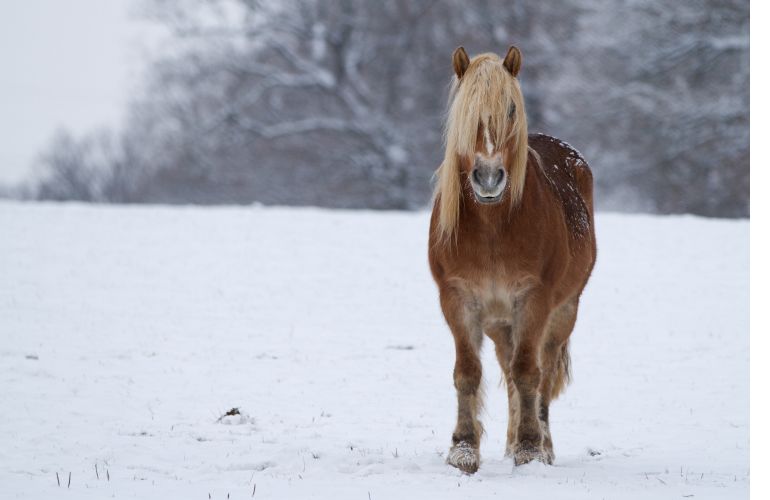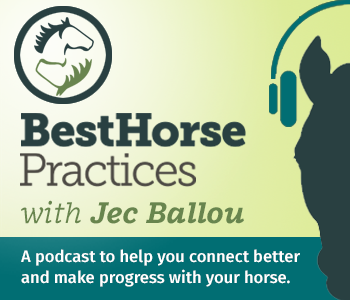By Tania Millen, BSc, MJ
In the last few years, teenaged horses have been making headlines by winning some of the biggest competitions on the planet.
At the 2020 Tokyo Olympic Games (held in 2021), over half of the three-day eventing horses were aged 13 through 19. The oldest horse was Tayberry, a 20-year-old ridden by Hong Kong’s Thomas Heffernan Ho.
In 2021, 16-year-old stallion Balou du Reventon was United States Equestrian Federation’s 2021 International Horse of the Year. He competed at 42 FEI-level show jumping competitions that year with five consecutive clear rounds at 1.6 metre level.
At the 2022 Dressage World Championships, one of the horses on Denmark’s gold medal winning team was 18 years old; two horses on Great Britain’s silver medal team were 16 years old; and three horses on Germany’s bronze medal team were in their teens.
Classic Moet, a mare ridden by New Zealand’s Jonelle Price, won Badminton Horse Trials in 2018 at age 15 and continued eventing at top level until her retirement at age 19 in 2022.
These are just a few recent examples. It seems that in every horse sport, teenaged horses are competing and winning, suggesting that top level horses quite literally “hit their stride” after age 12.
Even so, much of the horse industry is focussed on finding the next great prospect. Young, unproven performers garner vast prices. Many sports have young horse classes which encourage early development of immature horses. Perhaps teenaged horses have their own benefits, particularly as the cost of owning equines goes sky high.
Here’s what an amateur endurance rider with Pan American Games aspirations, an Under 25 (U25) event rider, a professional grand prix show jumper, and a coach had to say about the advantages and disadvantages of teenaged horses.
Related: Identifying Pain Behaviours in Ridden Horses

A member of Ontario Equestrian’s U25 eventing program, Chelsea Lowe had already gained an appreciation for older, experienced horses. When the 17-year-old went horse shopping for an experienced horse with mileage, 15-year-old Ulisis “ticked all my boxes.” Photos: Ian Woodley (above); Jasmine Heinlein Photography (below).

Schoolmaster Benefits
The biggest advantage that teenaged horses have over youngsters is their potential as schoolmasters.
“Teenaged horses have a ton of value in knowing their job and being able to teach riders,” says Kennedy Ellingson, a professional grand prix show jumper and coach based in Edmonton, Alberta.
That’s something 17-year-old Chelsea Lowe appreciates.
“I think that it’s important to learn from more experienced horses who have been there, done that,” says Lowe. She’s part of Ontario Equestrian’s U25 eventing program and leased Don’t Blink, a 17-year-old mare, for three years.
“She took me from pre-training, all the way up to my first CCI2** and my first Young Riders,” says Lowe. “I owe my skills to her. She taught me how cross-country is supposed to feel — fast paced, quick, and you have to make decisions. She was a dream to learn from.”
When Don’t Blink retired in 2022, Lowe went shopping.
“I wasn’t looking for a young horse,” says Lowe. “I was looking for something a bit more experienced, to take me to the CCI3*** level and Ulisis ticked all my boxes. It was an advantage that he already had the mileage. He’s 15 and is going to teach me a lot.”
Sophia Donovan has similar thoughts. “I think there are tons of advantages to riding teenaged horses. They know what they’re doing, take really good care of themselves, and are generally safer, more reliable, and more predictable than youngsters.”

Sophia Donovan and Trident competing in a 100-mile endurance race in Vermont, USA.
Donovan is a Canadian graduate student living in New Hampshire, USA and has been catch-riding endurance horses for the last two years to learn the sport.
“I’ve done the majority of my endurance miles on Trident, a 19-year-old Arabian gelding,” says Donovan. “We’ve done a couple of three-day 100-mile rides, lots of 50-mile endurance rides, and the Vermont 100 in July.”
Trident was an FEI 3*** horse in his prime and was semi-retired when Donovan met him in early 2022 and helped get him back competing.
“His physical capabilities are incredibly impressive but being a solid citizen is what makes him so valuable,” says Donovan.
“Teenaged horses have a massive amount of experience behind them, which makes them really incredible teachers for students,” says Tracey Skinner, the coach and manager of Meadowlands Equestrian, west of Calgary, Alberta. She has three mares aged 17 through 22 that she teaches lessons on and leases to students.
“The horses just do their jobs, so riders who are learning don’t have to be spot-on with their aids,” Skinner explains. “On a young horse, your communication needs to be very clear, otherwise there’s confusion and then you run into training issues. The older horses allow for a bit of a gray area and make up for their riders.”
“There’s also a safety component,” says Skinner. “The older horses don’t have the same reactions that a younger horse might when the rider is a little unbalanced or making a mistake or is scared or emotional. These horses seem to be able to handle that and don’t feed off their rider in the same way that a younger, less experienced horse would. The horses have self confidence.”
Related: A Good-Minded Horse
Known Abilities
Another advantage of teenaged horses is that they’re proven entities. Coaches and riders know what the horses are capable of and what training they have, so they’re more easily matched to riders than younger horses that have less mileage. In some cases, that means they’re more saleable.
Ellingson says when she’s considering a teenaged horse for a client she always looks at its show record. A solid record with no significant gaps suggests the horse is a reasonable gamble. Just like the stock market, past success isn’t necessarily an indication of future results, but it’s a useful metric.
“I think the pros (of buying a proven older horse) outweigh the cons,” says Ellison.

Sophia Donovan and Trident in a 50-mile endurance race. She says senior horses like Trident take good care of themselves and are usually safer, more reliable, and more predictable than youngsters. Photo: Kelsey Eliot
Professional Mileage
Teenaged horses also help professionals gain mileage without the stress of dealing with youngsters.
“I pretty much always have a teenaged horse on my string just for my own experience,” says Ellingson. “The majority of my riding is on young horses and client horses. So it’s nice — even as a professional — to have that ‘Steady-Eddy’ to ride that knows their job, especially when you’re moving up in height and working your way up the ranks.”
In 2022, Ellingson competed Chauccier, a 2007 gelding, in the CCI2** 1.3 metre jumpers before he was sold and says, “He was a really cool speed horse and riding him was a fun part of my day.”
Depreciating Value
However, prospective buyers are often put off by the potential to lose money on a teenaged horse.
“If you’re buying a 14-year-old horse for your kid to show for the next couple of years, the risk is that by the time you sell the horse, their value has depreciated,” says Ellingson. That’s less likely to happen with younger horses, whose value may go up, rather than down.
“A horse’s price starts to drop quite significantly every year beyond 13 or 14 years old,” says Ellingson of Canada’s show jumper market. “So even if you have an older horse that has no soundness issue, as soon as a buyer hears the ‘teen’ age, it’s automatically a bit of a red flag to them.”

Grand prix show jumper and coach Kennedy Ellingson says she always has a teenaged horse in her string because it’s nice to have a steady horse that knows their job, especially when moving up the ranks. She is pictured aboard the 13-year-old Coeur de Riccerole. Photos (above/below): Kim Gaudrey Photography

That depreciating value can be a double-edged sword. On one hand, buyers may be able to purchase a horse with great mileage and excellent schoolmaster-type abilities at a lower price than an up-and-coming prospect whose future looks rosy. But at some point the teenaged horse may age out of competition all together.
“Older horses are phenomenal but they’re not going to jump around forever, either,” says Ellingson. “As a coach, I think teenagers are worth their price,” she says. “But it’s hard to convince clients to spend the same amount of money on a horse that’s a bit older as they’d spend on a younger horse that has less mileage but more years left.
“Depending on how long you hang on to that teenaged horse, you’re looking at losing money or even having to pay for the horse’s retirement,” says Ellingson.
Related: Managing the Senior Performance Horse
Soundness, Injury, Retirement
Buyers looking at older horses carefully consider the horse’s soundness, potential for injury, and time to retirement.
“We didn’t really have any concerns about buying a 15-year-old horse,” says Lowe about buying her CCI3*** horse, Ulisis. “Obviously, horses with his experience might have some wear and tear, but he passed the vetting.”
“Many older horses are serviceably sound, so they need a bit of maintenance,” says Ellingson. “But that can be a drawback for a lot of potential buyers.
“There’s as much chance that a four-year-old will get injured as a 16-year-old, but when they get older, you worry about more significant injuries,” she admits. “There’s a higher chance that an injury will end their career. If a major injury occurs and you have to retire the horse because they’ll be too old by the time they recover, that retirement is a big expense.”
But Donovan thinks soundness partly depends on the sport.
“Endurance riding mirrors what horses are naturally designed to do, which is cover distance at a moderate pace,” says Donovan. “It’s not surprising to me that there are a lot of older horses doing it really well. If you take care of endurance horses and they have good genetics, they can compete at a pretty high level well into their old age — past when most other discipline horses would be retired.”
“Competitive trail riding (a form of endurance riding) focuses on nutrition, conditioning and horsemanship,” says Donovan. “So there’s less incentive to push a horse when your competitive success depends on how healthy and sound the horse is at the end of the competition.”
Related: Sparky the Wonder (Senior) Horse
Different Management Needs
Teenaged horses have slightly different management requirements than their younger counterparts.
“I work for a Canadian Team rider, and we found that the older horses we were trying to get to the Olympics or the Worlds kept their fitness really well,” says Lowe. “But I think you have to keep the older horses fit. They can’t be left out in the field for a few weeks and then be expected to go back at it, guns blazing.”

Tracey Skinner, coach and manager of Meadowlands Equestrian, says teenaged horses are incredible teachers for students. She has three mares aged 17 to 22 for lessons and leases to students. One of them is 20-year-old Lolita (pictured), ridden by Sarah Blackwood. Photo: Tracey SkinnerTracey Skinner, coach and manager of Meadowlands Equestrian, says teenaged horses are incredible teachers for students. She has three mares aged 17 to 22 for lessons and leases to students. One of them is 20-year-old Lolita (pictured), ridden by Sarah Blackwood. Photo: Tracey Skinner
Skinner agrees, saying, “As they get older, getting them fit again after time off gets harder and harder so we just keep them in regular work year-round. That might only be four days per week but they’re still moving.”
Lowe used strengthening supplements and rice bran to help her teenaged mare event at CCI2** level, plus invested in a BEMER® blanket which she’s found helps the older horses bounce back from their workouts more quickly.
For older endurance horses, meeting their nutritional needs and ensuring they aren’t over-conditioned are imperatives, says Donovan.
Ellingson says quite simply, “Good horsemanship is good horsemanship.”
Ultimately, those interviewed think the advantages of riding teenaged horses outweigh their potential age-related issues.
“I don’t think people should disregard a horse because it’s 15 or 16 years old,” says Skinner. “How they’re worked makes a huge difference to their soundness and longevity. If they’ve been ridden well with good body mechanics throughout their life, then a 15-year-old horse is still young.”

Tracey Skinner aboard the 17-year-old Oldenburg mare, Fara. Photo: Amanda Ubell
Donovan, an amateur endurance rider who has only been competing for two years, says, “It’s really a luxury being able to ride a solid, sane, and sound horse that is, by most metrics, past his prime.”
Lowe agrees, saying, “I think older horses are gems.”
Riders who are winning at top level with their teenaged horses would undoubtedly agree.
Related: Serviceably Sound Horse - What Does It Mean?
Related: Osteoarthritis - Keeping Our Aging Horses Sound
Endurance rider Sophia Donovan on Trident, a 19-year-old Arabian gelding. Photo: Kelsey Eliot







